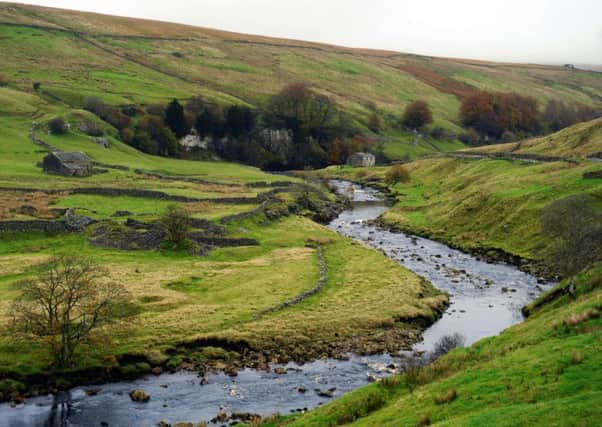Farmers want permit charge rise to be delayed


The National Farmers’ Union (NFU) wants the agency to delay the introduction of changes to its charging regimes, saying the move would significantly increase costs for farming businesses.
A consultation document published by the agency last November proposes a number of several fold increases in application, variation, surrender and annual compliance permit fees, which the NFU says are “disproportionately high”.
Advertisement
Hide AdAdvertisement
Hide AdPermit systems for poultry farming, land spreading of waste and sheep dip, on-farm anaerobic digestion and flood management would all be affected.
The concerns of the farming community have come to light following criticism by angling groups as reported this week in The Yorkshire Post.
The Wild Trout Trust seeks permits from the Environment Agency to carry out habitat improvement works on rivers across the country and it believes a 700 percent price increase would deter many citizen-led environmental projects from going ahead.
Explaining the affect on farming of any price rises, Mark Pope, the NFU’s environment forum chairman, said: “These proposed huge increases within the charging regimes could have a detrimental effect on many farm businesses.
Advertisement
Hide AdAdvertisement
Hide Ad“Very little information has been provided on the basis for these charge changes so the onus is solely on the EA to demonstrate greater transparency and show that these costs are fair, proportionate and competitive.” Mr Pope continued: “We’re extremely concerned that instead of investing in improving efficiency, productivity and new technology, we could see a lot of our costs tied up with inflated administrative costs.
“We want farming to continue to improve its environmental performance, but these cost increases could be seen as a disincentive to improve management practices or limit the availability of management options in the future. The proposals could also put up barriers to new permit applicants.
“That’s why we want to see the Environment Agency delay the implementation until at least April 2019 to give us time to have further discussions with the EA to find ways of keeping our costs down.
“Additionally, a permit nearly always has additional and wider socio-economic and environmental benefits, such as flood mitigation, improvement in air and water quality and waste recovery, which provides wider public goods. This must be recognised when the EA calculates the costs of permit administration.”
Advertisement
Hide AdAdvertisement
Hide AdEarlier this week, the Environment Agency explained that it is changing how it charges for permits so that its regulatory work, which is funded by taxpayers, is financially sustainable. Permitting requires technical assessments, monitoring and enforcement, and is resource intensive involving a high degree of expertise, the Agency said, and its charging structure previously took into account public subsidy which is no longer sustainable.
An Environment Agency spokesperson said: “We have been engaging with trade associations and environmental organisations over the last year while developing these proposals. Their input into this process has been really valuable and we urge them to take part in the public consultation.”
The public consultation closed yesterday.